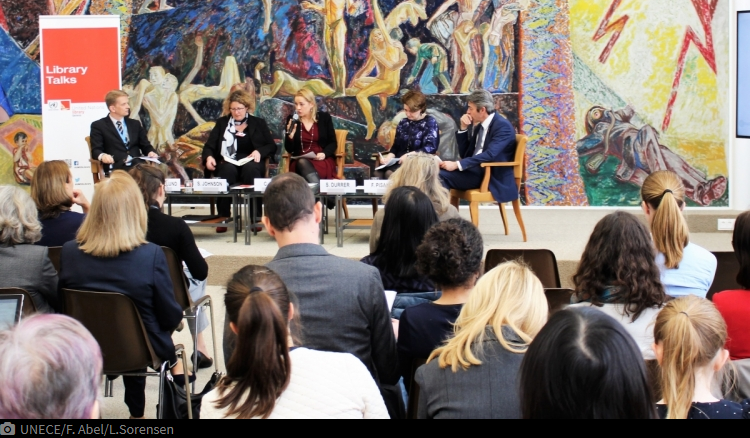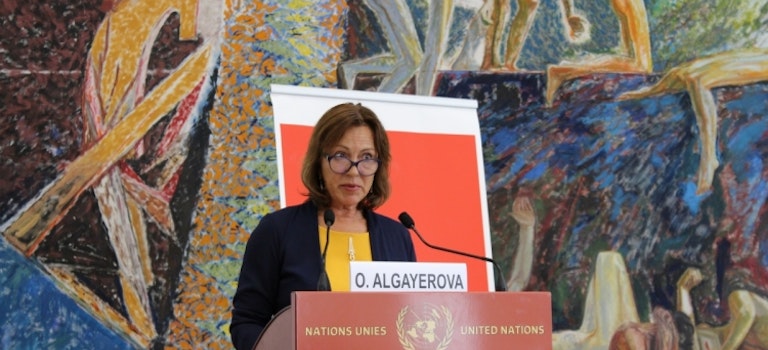It is an absurd reality: women around the globe have been earning less than men for work of equal value for decades. On average, women in the UN Economic Commission for Europe (UNECE) region earn only 81.8 cents for every euro men make. This gender pay gap persists despite the recognition of the principle of equal remuneration. At the current rate, over 100 years will be needed to close the gap.
What approaches can help to eliminate this inequality at a faster pace? This was at the heart of discussions this week as UNECE and the UN Library at Geneva brought together experts from UN Women, governments and the private sector to explore key issues, trends and solutions.
UNECE Executive Secretary and International Gender Champion Olga Algayerova made a strong case for tackling unequal pay. As a committed International Gender Champion, she emphasized, “The most difficult change needs to take place at the individual level. Only if we, men and women, are willing to challenge norms and cultures, we will make equal pay a reality.”
The Ambassador of Iceland and also International Gender Champion Harald Aspelund stressed that it is as much a social as an economic issue. He was among the first diplomats to take paternity leave: “How would I explain to my children that I had the right to take paternity leave but decided not to?”
Christine Löw, UN Women, confirmed that a multi-stakeholder approach is necessary to close the gender pay gap, which stands at 23 per cent globally.
Sylvie Durrer, Swiss Federal Office for Gender Equality, reiterated the importance of data and shared her country’s efforts in holding employers, from both public and private sectors, accountable for ensuring equal pay.
The important role of the private sector was also emphasised by Sue Johnson, PwC. She pointed to the business case for equal pay, highlighting increased engagement and motivation of all workers as well as improved company image.
The exchanges underscored that a shift in mind-sets is necessary - from attitudes towards flexible working arrangements, to tackling stigmas around parental responsibilities and gender role models.

From an article by the UNECE on the UN iSeek intranet.
